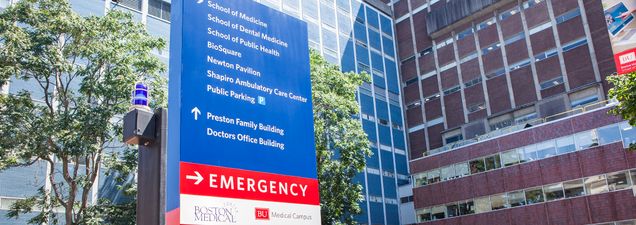Fieldwork

The clinical and non-clinical fieldwork experience provide students with opportunities to develop their counseling skills in a broad range of settings. These first-hand experiences familiarize students with individuals and families affected by a variety of genetic disorders.
Students have the opportunity to participate in fieldwork at Boston University/Boston Medical Center (Prenatal Genetics, Pediatric Genetics, Cancer Genetics, Breast Health Program, Autism Research Center of Excellence, Developmental and Behavioral Pediatrics clinics, Maternal Fetal Medicine clinic, Amyloid Treatment Program, and Sickle Cell Clinic), as well as at most all of the area hospitals throughout Boston and greater Boston. These experiences cover a diversity of clinical experiences at some of the best ranked hospitals in the nation which are on the cutting edge of medical care, genomics and research. Fieldwork experiences include:
- Prenatal Genetics
- Pediatric Genetics
- General Genetics
- Cancer Genetics
- Cardiovascular genetics
- Neurogenetics Clinic; Developmental Neurogenetics
- Specialty clinics: Down syndrome clinic; Otolaryngology; Mitochondrial disorders clinic; Comprehensive Brain Malformations Program, Congenital Myopathies Clinic and others
- Non-clinical field work including: Research Programs in Genomics; Clinical Research; Genetics Laboratories; Pharmaceuticals, Advocacy Organizaions
Year One Fieldwork
During the first year, students observe in a genetic counseling (or related) clinic for one half-day or full day per week. The observations include several core clinics at Boston Medical Center (BMC), including prenatal, pediatric and cancer genetics, as well as several specialty clinics within and outside of BMC.
During the second semester, students continue to observe in specialty clinics, but they begin active participation in the core genetics clinics at BMC. Student participation in counseling sessions includes case preparation, contracting with patients, obtaining prenatal, medical and family history information and explaining basic genetic concepts to patients. It is expected that each student takes the lead counseling role in at least two full cases (for a common referral reason) before the end of the first year. Students are also involved in reviewing patient charts and online medical records, collecting patient literature and testing information and writing follow-up letters.
Summer Fieldwork
During the intervening summer, each student spends six weeks full-time (or 30 days total) at an external rotation site. Students are encouraged to brainstorm early about potential cities and/or clinics of interest. To date, we have arranged clinical rotations in a wide variety of sub-specialties and cities, including San Francisco, Miami, New York, Seattle, Portland (ME), Cleveland, Philadelphia, Houston, Los Angeles, Portland (OR), Washington D.C., San Diego, Anchorage and Madrid.
Year Two Fieldwork
During the second year, each student completes 4 seven-week rotations at sites within Boston Medical Center and throughout New England. Each student will intern at a prenatal, pediatric/general, cancer and non-clinical site. The non-clinical sites include opportunities in labs, research, industry, public health and advocacy. Placements are assigned based on the student’s interest and site availability. Each rotation is approximately two full-days per week (or 14 days total). Students typically require access to a car for 1-2 of these rotations. For students who prefer not to own or borrow a car, we encourage them to inquire about Zipcar, a popular car sharing service here in Boston, or take the MBTA commuter rail (when applicable).